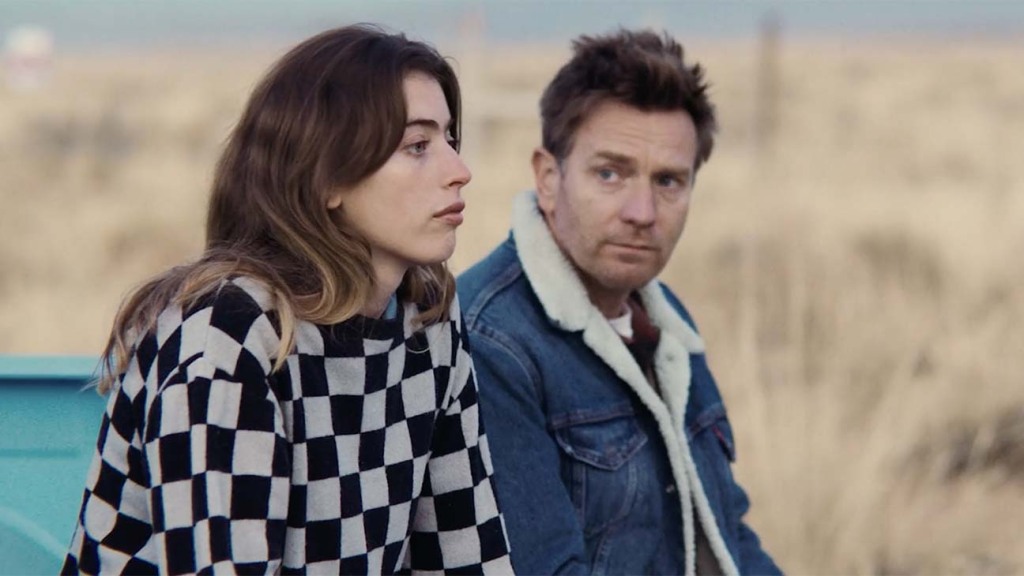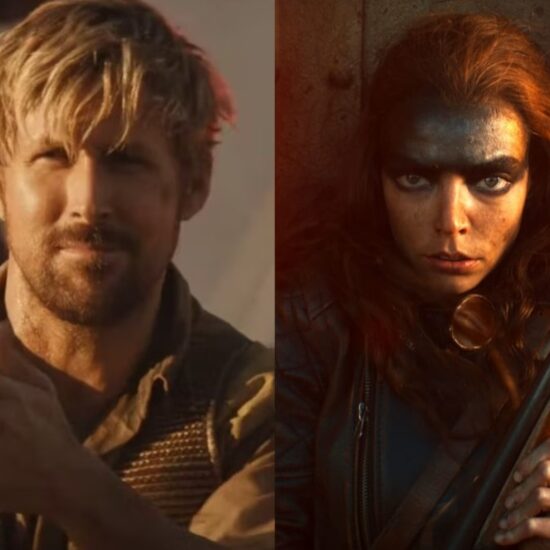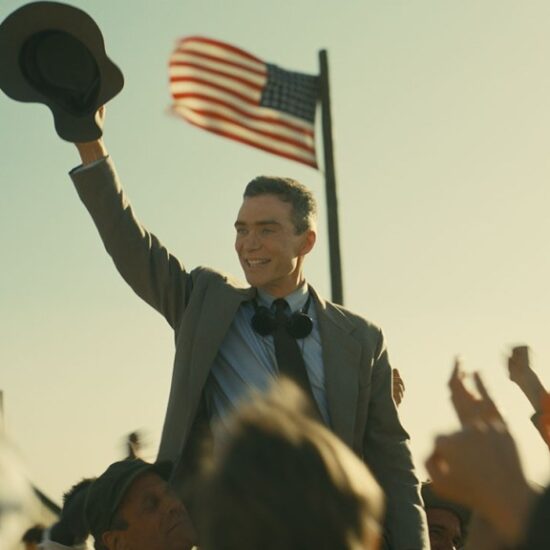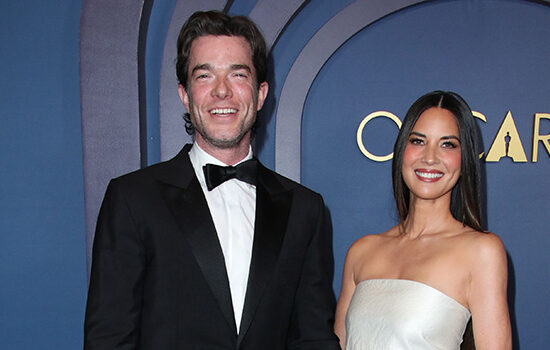
Casting father and daughter in a drama loosely based on their own relationship creates a fuzzy line between reality and fiction in You Sing Loud, I Sing Louder.
This uneven indie road-trip drama is at times too by-the-numbers but is always captivating thanks to its two stars, who hold the screen throughout. Ewan McGregor plays a landscaper with a pickup truck driving his daughter, played by Clara McGregor, to a destination he doesn’t share with her, or with us, until well into the film. We immediately see the distance between them, though, which is as vast as the wide, empty New Mexico landscape they’re passing, a lonely expanse of desert and scrub. He is clearly nervous with worry, and she is belligerent. Their characters have no names, a device that doesn’t serve any purpose, because these people are very specific. But the slow reveal of information works better than the no-name trick, allowing their actions and conversation, or silence, to create a tone of naturalism as we learn the backstory.
You Sing Loud, I Sing Louder
The Bottom Line
Saved by its charismatic stars.
We get a clue when the daughter slips a couple of mini-bottles of alcohol in her jacket pocket at a road-stop convenience store, and another when the father has a phone conversation looking for a place at a rehab facility. We come to know that she has been in the hospital that morning due to an overdose of pills, that he is taking her for help like it or not, and that they hardly know each other anymore because he left his marriage when she was a child.
There is more than stunt casting at work here. Both Ewan and Clara McGregor have been public about their individual struggles with addiction and their estrangement, problems now behind them. Clara co-wrote the film’s story with Vera Bulder and Ruby Caster, and Ewan has said that although the road trip is fiction, You Sing Loud is “a reflection of us and our story.” Other details are also invented. The daughter in the film was much younger than Clara when her parents divorced, but like her on-screen counterpart she has acknowledged having had a hard time accepting her father’s second wife (in reality Mary Elizabeth Winstead, with whom McGregor has a young child, like the father in the film). The emotional wounds on both sides of the parent-child relationship are depicted with raw honesty here, as the characters drive toward what the father hopes is a fresh start in every way.
That real-life subtext is hard to ignore, and at times seems like a scrim between us and the fictional world. That is largely because the film’s structure and direction — this is the first feature directed by Emma Westenberg, who has made music videos and episodes of the series Dollface and Little Voice — are at times plodding and obvious. Since it’s hard to fully enter the landscape of the film, the real-life relationship never quite disappears.
There are some graceful touches, including sporadic quick flashbacks from the daughter, who sees herself as a small girl with her playful, attentive father. But too often we can sense the wheels turning as the plot moves on. There are detours on the road to introduce some eccentric characters, presumably to liven things up. A brash tow truck driver (Kim Zimmer) takes them to her family home, where her nephew (Jake Weary) wears a clown costume at a birthday party. There is a frenzied rush to find a pharmacy and a free-spirited hooker (Bulder, also one of the film’s producers) who dances amid glittering lights on the road. Christopher Ripley’s cinematography effectively captures the emptiness all around them for much of the trip, and the colorful places they land, but there are way too many pretty shots of the horizon.
Even when the story seems awkwardly goosed, the actors keep us watching. Ewan McGregor, of course, is one of our best and most versatile actors, believable as Obi-Wan Kenobi or an ordinary guy trying to save his daughter from a downward spiral into addiction. Clara McGregor, a model and actress who has appeared in American Horror Story: NYC, has an arresting face and is completely natural in this role. That wasn’t a given. Film history is littered with people who have failed at playing versions of themselves, but she holds her own on screen.
At its best, You Sing Loud is bracing. In a buoyant, cheerful moment, the father and daughter sing along to Leona Lewis’ pop hit “Bleeding Love,” only to be interrupted by a phone call from the father’s young son — a call that clearly unsettles the daughter. It’s the kind of smart juxtaposition the film could have used more of.
And there is an angry blow-up near the end, when both father and daughter unleash their emotions: his sincere concern and regret, her hurt and damaged sense of herself. That visceral scene needed a build-up, but maybe one that was more dynamic from the start.













